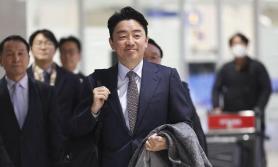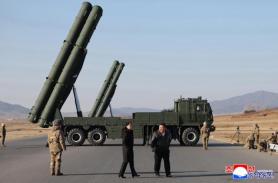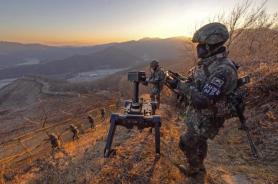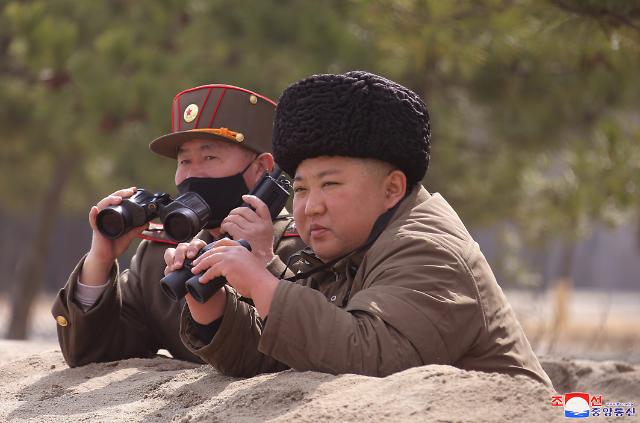
A picture published by Pyongyang's state media shows North Korean leader Kim Jong-un and Pak Jong-chon, chief of the General Staff, holding binoculars during a firepower strike drill on March 9. [Yonhap News Photo]
South Korea's military detected a volley of projectiles launched from a place in the eastern town of Sondok on Monday, with at least three flying around 200 km and reaching a peak altitude of around 50 km. The launch interval of the first and second shots launched from the super-large rocket system was 20 seconds.
A day later, North Korea's official Korean Central News Agency (KCNA) reported that Kim guided another firepower strike drill of long-range artillery units. "The purpose of the firepower strike drill was to inspect the sudden military counterattack capability of the long-range artillery units on the front," KCNA.
Pictures published by Pyongyang's state media showed a wheeled transporter-erector-launcher (TEL) with four launch tubes, which has been used in previous launches. One picture showed Kim wearing a woolen hat and Pak Jong-chon, chief of the General Staff, who put on a black face mask. Both were seen holding binoculars in an observation post.
In an earlier drill on March 2, two projectiles covered a distance of about 240 km and reached a maximum altitude of 35 km. The time of continuous launch was reduced to 20 seconds, the shortest yet to date. Specifications were not disclosed, but North Korea has tested 600-㎜ multiple rocket launchers called KN-25.
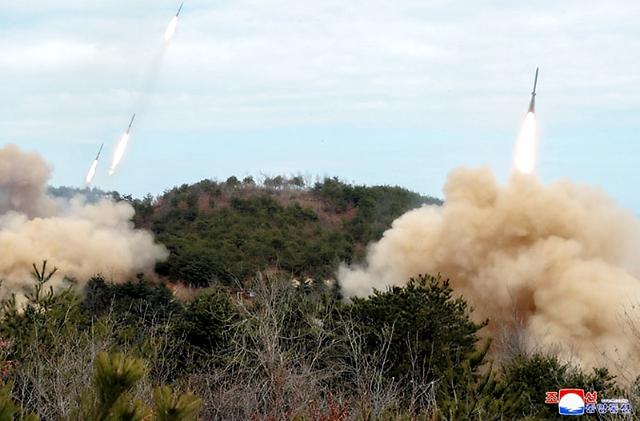
A picture published by North Korea's state media shows a firepower strike drill on March 9. [Yonhap News Photo]
The KN-25 system capable of attacking rear-echelon targets and suitable for deployment at the battalion level is about 8.2 m long and about 60 cm in diameter and weighs just under 3,000 kg, Elleman said, adding its payload bay is too small to deliver a nuclear weapon but likely carries a 400 to 500 kg conventional, blast-fragmentation warhead.
As long-range missiles remain unproven and have limited operational viability, Kim cannot be certain that they will work properly in a crisis, the expert said. "It is, therefore, reasonable to argue that Pyongyang may not view these long-range missiles as viable for nuclear warfighting. Rather, they are likely designed to deter attacks by threatening possible use against the United States under a limited set of circumstances."
If North Korea wants to enhance its ability to deter a U.S. attack, it will need to increase the credibility of long-range missiles through a more rigorous set of flight tests, Elleman said.
Copyright ⓒ Aju Press All rights reserved.

